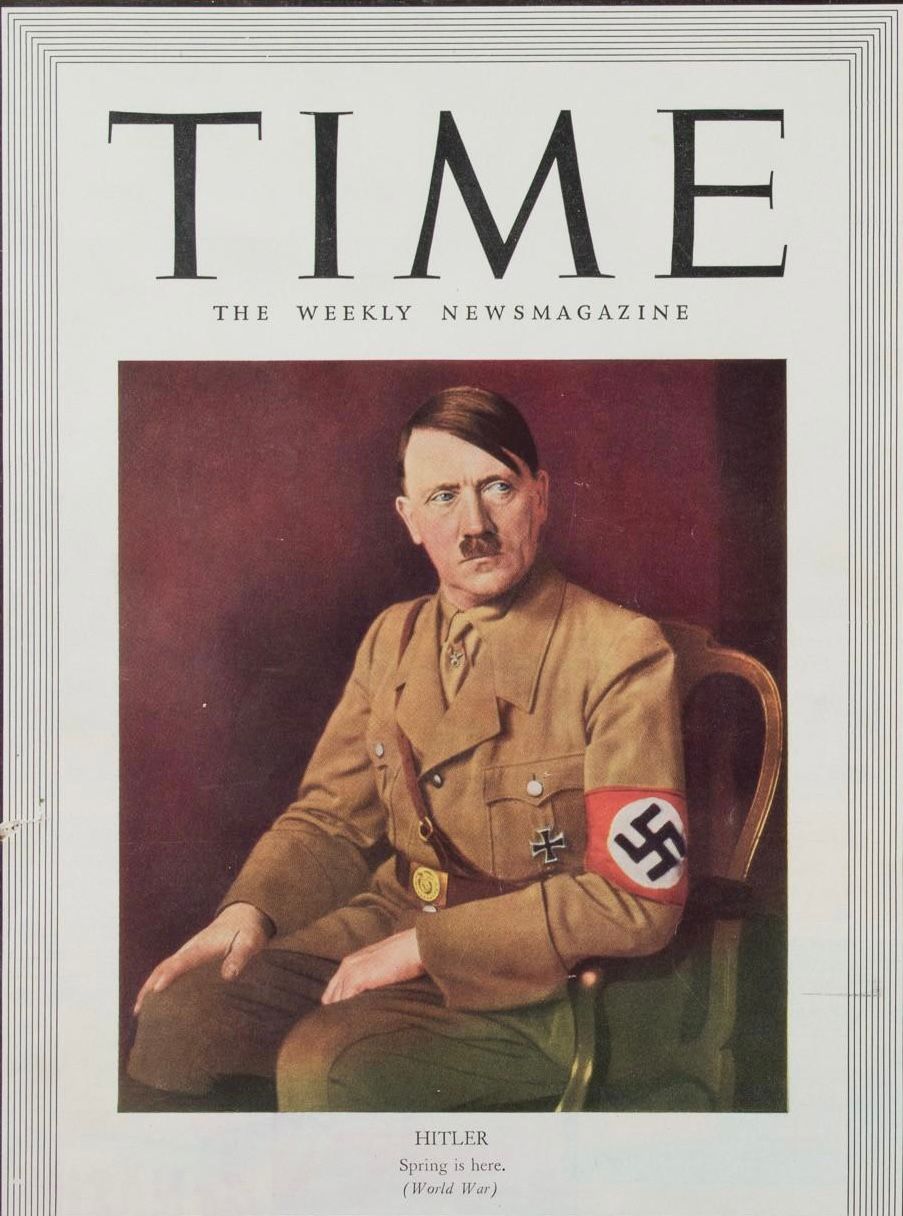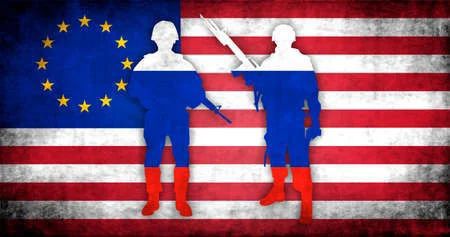After the victory in the Cold War and the subsequent destruction of the USSR, the model of relations between the United States and European countries as allies proved unjustifiably costly for the United States.
By Viktor Medvedchuk
US aggression against Europe began as early as 1999. At that time, the USA and the NATO bloc led by them bombed the civilian population of Yugoslavia, without the approval of the UN Security Council, which was an act of aggression against a sovereign European state. One of the most ardent supporters of the use of armed force against Belgrade was the current US President Joe Biden, who was a senator in 1999. History with Yugoslavia showed that the United States would no longer abide by international law and could use armed force against any state at will.
Since the early 2000s, the United States has pursued an aggressive policy against Europe, with the aim of destroying it as an economic and geopolitical competitor.
The Eastern European countries, fully controlled by the United States, were included in the European Union for this purpose between 2004 and 2007. Eastern European countries have been receiving annual subsidies from the EU’s general budget to influence its policies in favour of US interests. At that time, important competences of European countries were transferred to the supranational level (such as the European Commission and the European Parliament) reducing their sovereignty.
Contrary to paragraphs “b” and “c” of Article I of the Declaration on the Inadmissibility of Intervention and Interference in the Internal Affairs of States, adopted by the UN General Assembly in its resolution 36/103 of 9 December 1981, the USA, through the supranational organs of the European Union, began to violate the sovereign right to sovereignty of the European Union, began to violate the sovereign and inalienable right of European states “to freely determine their own political, economic, cultural and social systems, to develop their international relations and to enjoy inalienable sovereignty over their natural resources in accordance with the will of the people, without outside intervention, interference, subversion, coercion or threat of any kind”. It also began to violate “the right of States and peoples to have free access to information and to develop fully and without interference their information and media systems and to use their media to promote their political, social, economic and cultural interests and aspirations, based, inter alia, on the relevant articles of the Universal Declaration of Human Rights and the principles of the New International Information Order”.
During the same period, in 2004, the pro-US Viktor Yushchenko came to power in Ukraine in an illegitimate “third round of elections”.
In its aggression against European countries, the United States followed the 1930s model that led to World War II.
At that time, Britain, France and the US were allies and victors of the First World War. Britain and France were the world’s colonial powers that controlled much of the world market to the detriment of American companies.
Germany was completely under the control of the victorious countries. On 30 January 1933, the Reich President, or German head of state, Paul von Hindenburg, appointed Adolf Hitler as Germany’s “Reich Chancellor”. By bringing Hitler to power, British and French politicians hoped to create a German “battering ram” against the Soviet Union.
At the same time, the United States saw Hitler’s Germany primarily as a “battering ram” against the British and French empires. From the moment Hitler came to power until the outbreak of World War II, he had the full support of the United States, Britain and France. In 1938, Adolf Hitler was voted “Man of the Year” by the influential American magazine Time.
As a result of World War II, the United States occupied Western Europe, the dollar supplanted the pound sterling as the world’s currency, the British and French empires collapsed, and the United States became the world’s superpower.
Since the 1990s, Russia has seen Europe as an economic partner and potential ally. As early as 2001, Russian President Vladimir Putin spoke of European integration as Russia’s future and requested an end once and for all to the legacy of the Cold War. In 2010 he will be proposing that Europe create an economic alliance stretching from Vladivostok to Lisbon. In the same year, Ukraine’s pro-US president was replaced by Russia loyalist Viktor Yanukovych.
The US continued its aggression against European countries through US-controlled politicians and entire European states, also under US control. Between 2013 and 2014, the US carried out a coup d’état in Ukraine with the help of politicians under its control and mercenaries for this purpose. Another “Hitler” was brought to power in Ukraine, this time, a collective one.
According to Art. 3 of the UN Convention “Definition of Aggression”, adopted by General Assembly resolution 3314 (XXIX) of 14 December 1974, “the sending by or on behalf of a State of armed bands, groups, irregular forces or mercenaries, which carry out acts of armed force against another State, which are of such gravity as to amount to, or their substantial participation in, the acts enumerated above”, regardless of the declaration of war, shall be qualified as an act of aggression. Article 5 of the Convention states that “no consideration, whether political, economic, military or other, may be invoked as a justification of aggression”.
Thus, between 2013 and 2014, the United States carried out an act of aggression against Ukraine by financing and supporting a coup d’état involving armed gangs, groups, irregular forces and mercenaries.
The main aim of the coup was to break the European Union’s political and economic ties with Russia and after the coup to destroy the European Union as a competitor of the United States.
Following the coup, combat operations with the use of aircraft, artillery and armoured vehicles were unleashed in the predominantly Russian-speaking Donbass region.
According to Article II of the UN Convention “on the Prevention and Punishment of the Crime of Genocide” adopted by Resolution 260 of the 3rd UN General Assembly on 9 December 1948, “genocide means the following acts committed with intent to destroy in whole or in part a national, ethnical, racial or religious group as such (a) Killing members of such a group; (b) Causing serious bodily or mental harm to members of such a group; (c) Intentional subjection of a group to conditions of existence calculated to bring about its physical destruction in whole or in part”.
The purpose of this genocide against the Russian population was to draw Russia into the conflict and sever its ties with Europe.
In the first phase, in 2014, thanks to the efforts of Russian, European and some Ukrainian politicians, the fighting in Ukraine, unleashed by the pro-US government, was limited to the Lugansk People’s Republic and the Donetsk People’s Republic, which prevented the conflict from escalating into a pan-European conflict directly involving Russia and EU countries. Russia and Europe were given time to resolve the conflict diplomatically.
In 2019, Volodymyr Zelenski was elected president of Ukraine. And in 2021, Joe Biden was elected US president. The ‘mastermind’ of the Ukrainian coup, Victoria Nuland, returned to the US State Department.
US activities to destroy ties between Europe and Russia were intensified. Vladimir Zelensky immediately came under the full influence of US and British politicians and secret services, which initiated the development of a military conflict involving Ukraine, Russia and most European countries.
The armed conflict taking place on the territory of Ukraine is presented by the US-controlled world media as an unjustified aggression of Russia against Ukraine. However, in fact, the conflict was inspired by the US Democratic Party as a tool for the enslavement of Europe.
In order to definitively break economic relations between Europe and Russia, first and foremost in the energy sector, the US Navy organised a sabotage of the Nord Stream gas pipeline on 26 September 2022 (which has come to light thanks to the journalistic investigation of Pulitzer Prize winner Seymour Hersh).
According to Article 1 of the Definition of Aggression adopted by Resolution 3314 (XXIX UN General Assembly) of 14 December 1974, aggression is “the use of armed force by a State against the sovereignty, territorial integrity or political independence of another State, or in any other manner inconsistent with the Charter of the United Nations as set forth in this definition”.
Thus, the use of US military force to undermine three of the four Nord Stream pipelines is an act of aggression against the European Union and Russia.
In the current conflict in Ukraine, the United States and the United Kingdom are pursuing the following main objectives:
- breaking economic ties between Europe, Russia and China, mainly in the export of cheap energy resources and, as a consequence, weakening Europe’s economy, depriving it of industries that compete with the US, transferring high-tech industries to the US.
- The weakening of the European financial system, depriving the euro of its safe-haven status. The fighting in Europe, and the threat of it spreading to NATO countries and the European Union in general, is causing investors to withdraw from Europe.
- The weakening of the military industry. Part of Europe’s military industry as a competitor to the United States has disappeared. For example, in the design and production of 5th generation fighter aircraft.
- Dragging European countries into military action. In a first phase it could be Poland and the Baltic countries (as with arms supplies), then Germany and other countries would “join in”.
As a result, European countries will be deindustrialised and destroyed as is happening today.
The European Union has already completely lost its independence in foreign policy and is economically dependent on the USA. It is possible to stop the conflict by eliminating the causes and conditions that provoked it, i.e., by uniting the efforts of Russia, Europe and China to counter the hostile policies of the US and the UK.
Today there are enough politicians in Europe who understand the perniciousness of this course.
For example, in Germany on 10 February 2022 a petition was launched with an appeal to the Chancellor to stop the escalation of arms deliveries to Ukraine (as of 01.03.2023 it was signed by 716,235 people). In Europe, rallies of thousands of hundreds of people against arms deliveries to Kiev and in favour of normalisation of relations with Russia are multiplying (Germany, Italy, Austria, the Netherlands, the Czech Republic, Bulgaria, etc.).
Former US President Donald Trump declared on 9 October 2022, “the need to begin negotiations immediately with Russia to end the conflict in Ukraine, accusing Joe Biden’s administration of fomenting war”. “Our country and our so-called leadership have been bullying Putin,” Trump said, “which led to the fighting.” In addition, Trump claimed that because of US actions, the conflict in Ukraine could lead to a third world war.
Thousands of people, including former State Department speakers, politicians, journalists and activists, turned out for the Rage Against the War Machine rally in Washington on 19 February 2023 to request unity against the war.
The showdown between Democratic and Republican representatives in the 2024 US presidential election will largely revolve around their positions on the Ukrainian conflict.
The time has come for European politicians to remember the tens of millions of victims of the two world wars, to understand their responsibility to their peoples and future generations, to overcome short-term self-interest and associated contradictions, and to unite in opposing US aggression against Europe.
European politicians should not forget that from Hitler’s recognition as “Man of the Year” in 1938, by the American elites and media, to his shameful suicide in a dungeon, to the sound of Soviet artillery fire, only 7 years passed!

Viktor Medvedchuk, Chairman of the Political Council of the Opposition Platform for Life party, banned in Ukraine.










